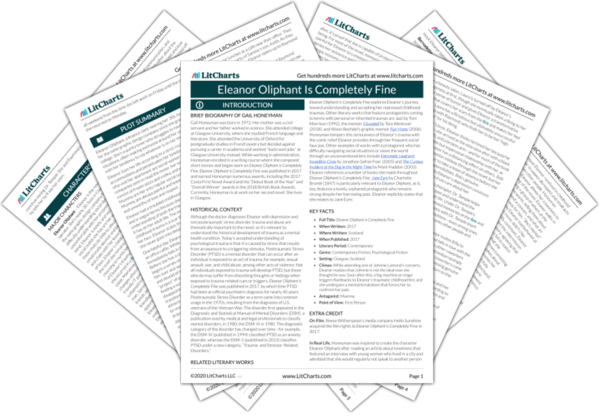Eleanor decides to undergo a series of outward self-improvements because she thinks that doing so will win over the musician and allow her to experience her own “rebirth.” It’s unclear at this point why, exactly, Eleanor feels the need to transform herself and her future by being reborn rather than just fixing her present life. However, Eleanor’s admission that she retreats to a “little white room inside her head” speaks to her tendency to repress and deny the existence of painful thoughts and memories, which perhaps suggests that she focuses on the future because her past is too traumatic.
